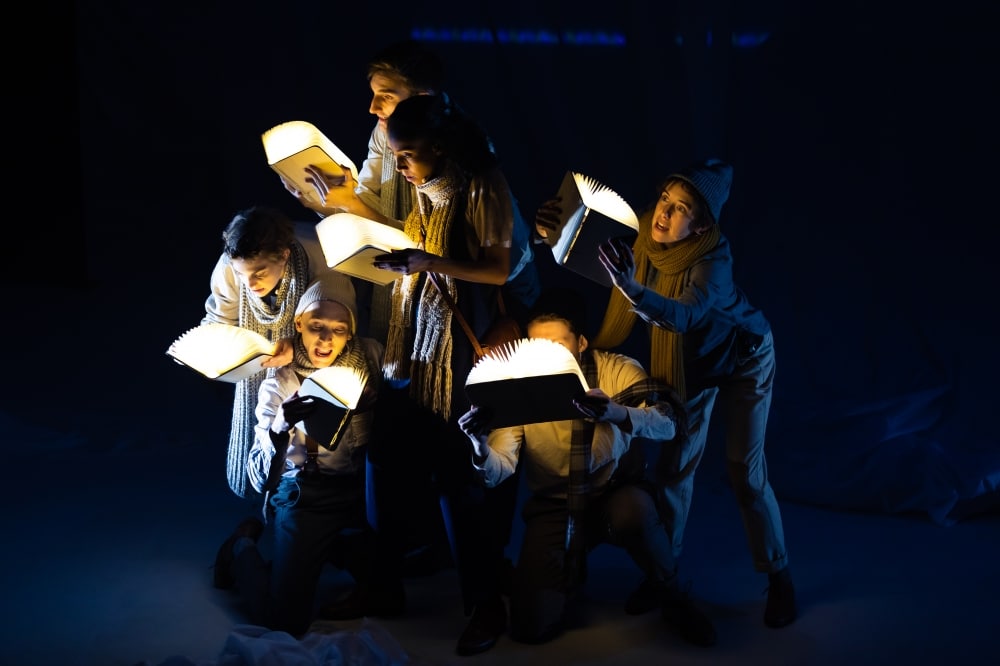When it comes to music, Mikey Kirkpatrick certainly knows a thing or two. The London-based singer/songwriter and musician has been involved with it since the tender age of seven and has since dedicated his life to it, releasing music under his Bird Radio moniker and even co-running his own record label, Avocado Music, for a decade.
Mikey’s musical journey began with him learning the flute – still a huge influence in his music – and soon he was busking and getting involved in local community music and theatre projects before going on to study music at Goldsmiths University in London.
He released his first solo album ‘The Boy and the Audience’ in 2013, along with a film trilogy and his first feature film soundtrack, followed shortly afterwards by Chiara Ambrosio’s debut feature ‘La Frequenza Fantasma’ (The Ghost Frequency).
Around the same time he started composing music for various venues, including the Birdsnest Theatre company and working with influential people such as the director and puppeteer Michael Fowkes on different projects.
“I enjoy collaborating and storytelling through my music,” says Mikey. “Writing for theatre is ideal for me as it gives me the opportunity to explore different genres and approaches to composition, so I am always learning something new.”
His latest project has been scoring the music to The Snow Queen, Kezia Cole’s first production as Artistic Director of Trinity Theatre. So, how did the commission come about?
“I was contacted by Kezia while we were both involved with separate shows at the Edinburgh Fringe Festival earlier this year,” says Mikey. “She had heard some of my previous Bird Radio albums and invited me to compose the soundtrack for The Snow Queen based on that. I hadn’t been to Trinity Theatre before, but now I know it and love the space very much!”
Although it was an exciting project for Mikey to undertake, it certainly wasn’t without its challenges: “It was the shortest timescale ever for me – and the biggest project to date! I ended up doing 19 songs as well as the incidental music for seven performers. I really liked the script and original fairy tale, and it’s rare to be invited to compose a soundtrack based on your previous work with very few constraints, so I was very happy to take on the challenge!”
Kezia contacted him at the end of August, and Mikey started work on the soundtrack in mid-September. “The first thing I did was read the original text. It’s a very special fairy tale for me – and as always with Hans Christian Andersen, it doesn’t hold back on complexities of relationships. It has plenty of darkness as well as light.”
The score itself took two months to complete and the music rehearsals were directed by Mikey and Anna Vanosi, the show’s musical supervisor, who he also met at Edinburgh.
“The actors were excellent and picked up the music very quickly,” reveals Mikey. “Working with pre-written lyrics gave me an interesting creative challenge. My last two solo albums were poetry settings (Oh, Happy England, Walter de la Mare, 2015, and Crow, Ted Hughes, 2019) and I enjoy how unexpected rhythms, melodic shapes, moods and meanings lie waiting in the words of a silent page.”
Mikey says he did most of the composing in the wee small hours of the morning, juggling his numerous teaching jobs as well as providing childcare for his young daughter.
“I believe overthinking is one of the biggest stumbling blocks in the creative process, and there isn’t much chance of thinking much at all at 4am in a cold recording studio with a coffee in one hand and microphone in the other!
“Tight deadlines can be very useful for making things happen and trusting instinct and intuition! ‘Happy Flowers We’, Summer’s Number, was written at dawn on a wintry London morning. I’m always fascinated by how an environment affects the way one composes. Clearly I was looking for some summer warmth that morning!”
What did Mikey enjoy most about this creative process? “I really enjoyed the experience of the songs appearing one by one, and getting to know each of the characters.
“I particularly enjoyed writing for and singing The Snow Queen’s voice, which pushed me into a falsetto that I don’t normally use – definitely inspired by Kate Bush! I also felt the tragic loneliness of her character in the original text, which I wanted to get across.”
Mikey says that bringing the music to the actors was also a joyful experience. “They are good improvisers and were willing to make the music their own. It was great to leave them to rehearse the music and hear it transformed into something new again.
“The warmth of the ending was important to me, too. Hearing the cast sing the final song in the first rehearsal was a truly beautiful moment for me.”
In terms of what he hopes the audience enjoys most about his ambient score, that’s pretty simple: “I hope it makes them smile and that they feel transported into Hans Christian Andersen’s magical world.”








